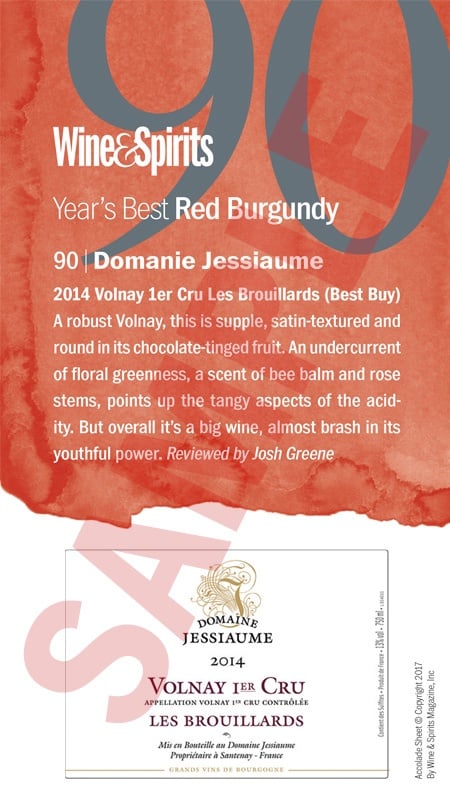On one of the busiest restaurant nights of the year, the United States Trade Representative sent a muted Valentine to the wine industry. Instead of raising tariffs to the 100 percent level, the USTR will keep the existing tariffs of 25 percent on a range of wines from France, Spain, and Germany. Many in the wine trade had argued for the removal of the tariffs on wine completely.
“Certainly not the news we were hoping for, but not the catastrophe we feared,” Gabe Clary commented on Instagram in response to the decision. Clary is the portfolio manager for Terry Theise wines at Skurnik Wine and Spirits.
Theise imports many leading grower champagnes and those will remain tariff-free.
The wines that remain affected by the 25 percent tariff are French, Spanish and German still wines under 14 percent alcohol as well as wines imported in format smaller than two liters (a regular bottle is 750 ml). Such wines from the United Kingdom are also hit by the tariff but their imports are tiny as many English wines are sparkling. Wines from other EU countries, such as Italy, will remain unaffected.
“Wine tariffs remaining at the status quo is a testament to the hard work put in by the wine industry, but it’s still a shallow victory,” says Harry Root, the founder of the US Wine Trade Alliance, a group organized in response to the threat of 100 percent tariffs.
The USTR solicited comments on the proposed action of raising tariffs to 100 percent on some goods, including wine, and received 26,000 comments. Members of the wine industry also flooded a hearing in a parallel trade dispute to make their comments heard in person (see previous coverage).
The crux of the trade dispute is over airplane subsidies. The US brought a complaint to the WTO alleging illegal subsides from European governments for Airbus. When the WTO ruled in favor the US last October, the US quickly imposed tariffs on a range of goods imported from the EU totaling $7.5 billion. That included a diverse range of consumer goods including sweet biscuits, cashmere sweaters, single-malt Scotch, select cheeses and wines. These products had a 25 percent duty imposed while airplanes only had a 10 percent duty imposed.
That will change since airplanes will now bear more of the burden with a 15 percent duty. France, Germany, the United Kingdom and Spain are the four members of the Airbus consortium.
The EU has brought a separate case before the WTO alleging illegal US subsidies of Boeing to the tune of $12 billion per year for developing planes such as the 737 MAX. A decision on that is expected this spring. Barring a de-escalation after that decision, these tariffs are likely to remain in place until August when the USTR must review them again.
This story appears in the print issue of jan 2020.
Like what you read? Subscribe today.















